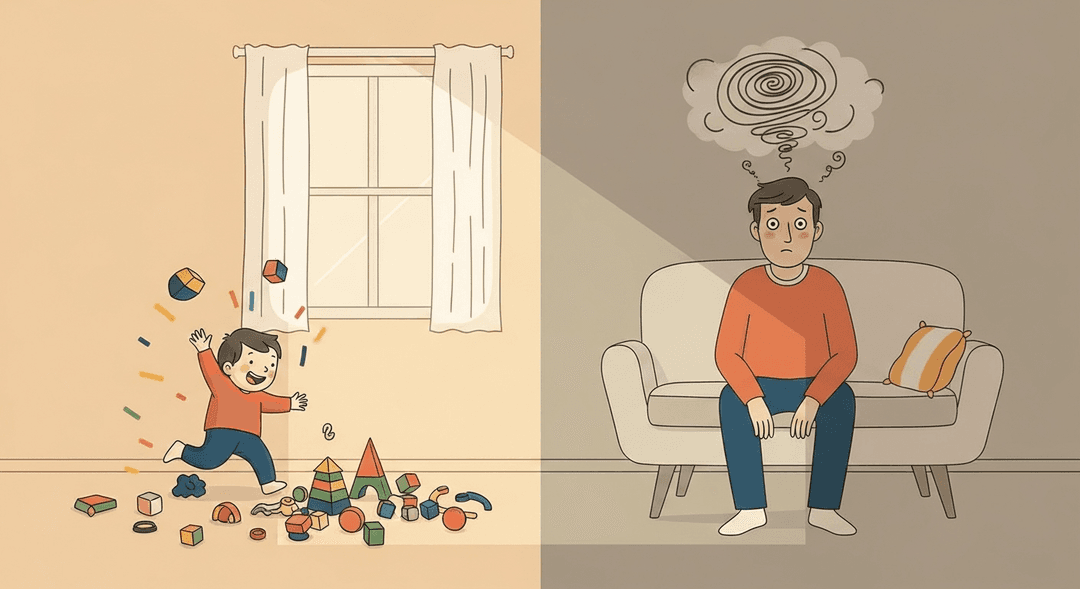Monitor Your Own Mental Health
Ever feel like your brain is buffering—just spinning, while your kid is on level 99 of chaos mode? If you’ve ever wondered if 'dad brain' is a real diagnosis (hint: it should be), this is your permission slip to check in on your own mental health. Because sometimes the biggest leap isn’t baby’s first steps—it’s admitting you might need a little help, too. Spoiler: it’s not just you, and it’s not a contest for who can keep it together the longest.
Checking in on your mental health isn’t just about dodging the blues—it’s about giving your brain a fighting chance to show up for your kid. Healthy dads are more patient, more engaged, and less likely to turn into grumpy background characters. For your child, a dad who seeks help models resilience, emotional intelligence, and the radical idea that grown-ups have feelings, too. Bonus: when your brain feels good, it’s easier to find the missing pacifier.
How to do it
-
Start with a quick self-scan. Ask yourself: Am I okay, or am I running on fumes? Take a moment to check in with your body and mind.
-
Talk to someone about how you’re feeling. This could be your partner, a friend, or even your dog (though reaching out to a professional can be especially helpful).
-
Use a mental health app, keep a journal, or simply jot down your mood on a sticky note. Tracking your feelings can help you notice patterns and make sense of what you’re experiencing.
-
If things feel heavy, don’t hesitate to call your doctor or a therapist. There’s no shame in seeking help—think of it as regular maintenance for your mental health.
-
Repeat these steps as needed. Checking in with yourself is an ongoing process, and it’s okay if you need to do it more often than you’d like.
Tips:
- Be honest with yourself during your self-scan.
- Small check-ins are better than none at all.
- Professional support is a sign of strength, not weakness.
- Consistency helps you notice changes before they become overwhelming.
